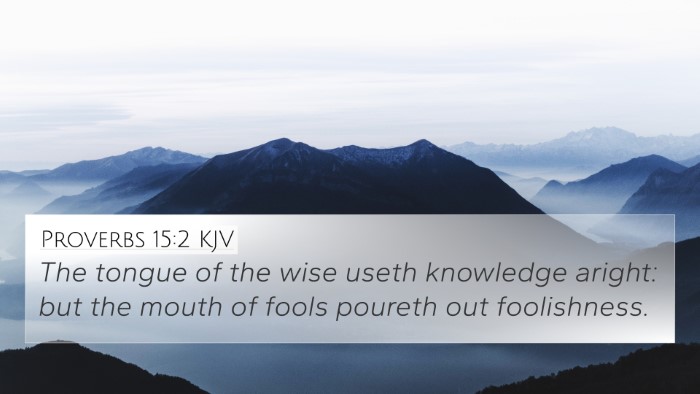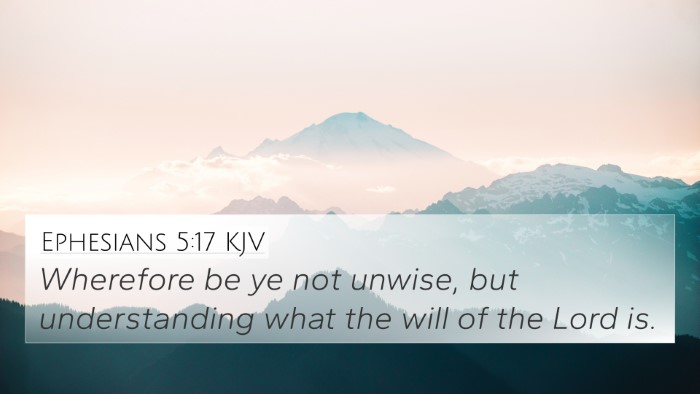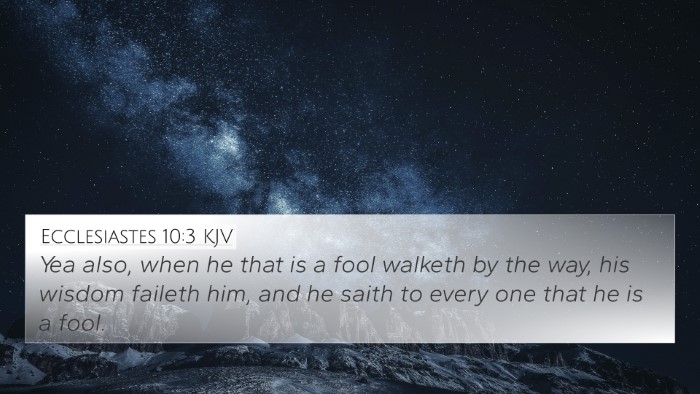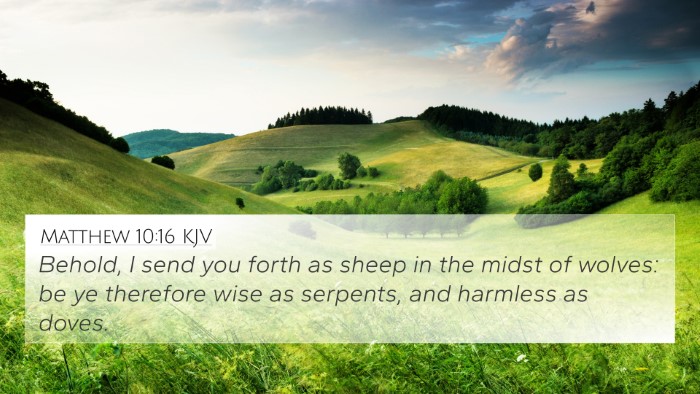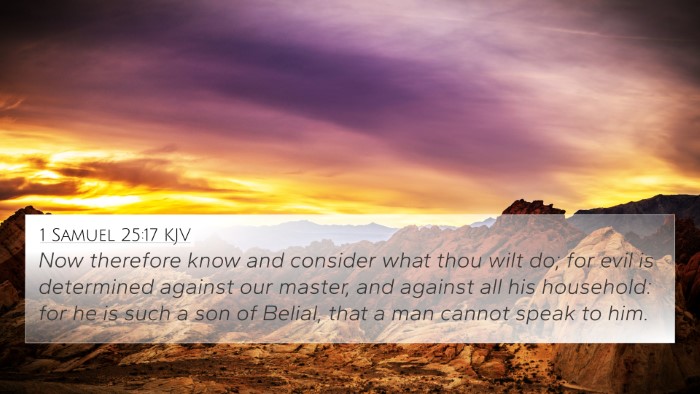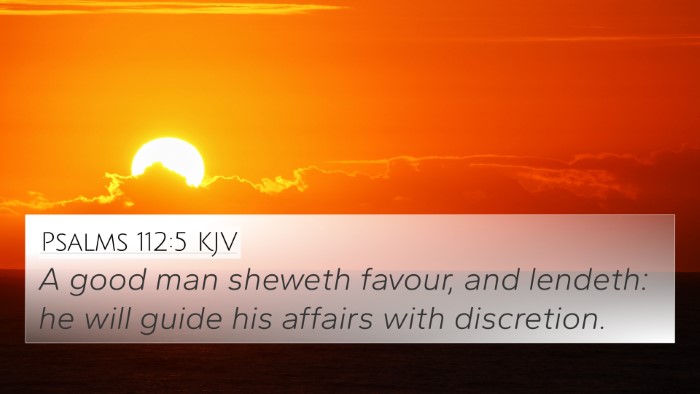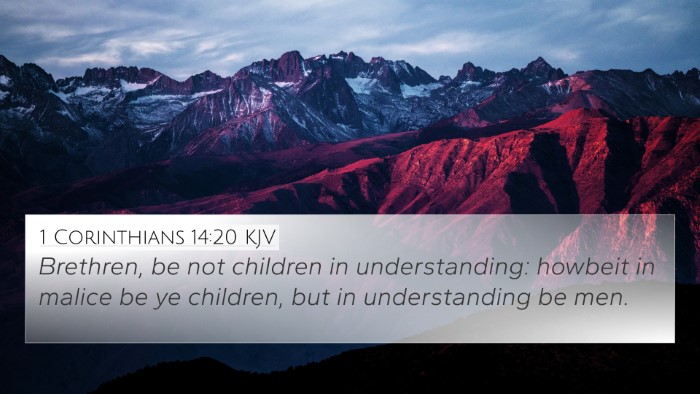Meaning and Interpretation of Proverbs 13:16
Bible Verse: Proverbs 13:16 - "Every prudent man acts with knowledge, but a fool flaunts his folly."
This verse from Proverbs contrasts the behavior of the wise and the foolish, highlighting the importance of discernment and knowledge in decision-making.
Verse Analysis
According to Matthew Henry's Commentary, this verse emphasizes the attributes of a prudent man—someone who is wise, discerning, and acts based on understanding rather than impulse. A prudent person takes time to reflect on their actions and possesses the wisdom necessary to navigate life's complexities.
Albert Barnes expands on this by noting that the "fool" in this verse refers to individuals who disregard wisdom and understanding. The fool is portrayed as one who revels in their ignorance and boasts about actions that lack foresight. This contrast serves as a cautionary principle for readers to cultivate discernment.
Adam Clarke points out that the Hebrew word for "prudent" suggests the quality of shrewdness—having the ability to make sound judgments. The verse therefore encourages individuals to develop a foundation of knowledge that informs their actions. One must not only seek knowledge but also apply it wisely in every undertaking.
Significance of Knowledge
The theme of knowledge is critical in Proverbs, as it elucidates how wisdom is essential for living a righteous life. Knowledge not only equips individuals to make better decisions but also shields them from folly.
- Proverbs 1:7 - "The fear of the Lord is the beginning of knowledge." This highlights that true knowledge begins with reverence for God.
- Proverbs 2:6 - "For the Lord gives wisdom; from His mouth comes knowledge and understanding." Knowledge is seen as a divine gift.
- Proverbs 4:7 - "Wisdom is the principal thing; therefore get wisdom: and with all thy getting get understanding." Highlights the priority of acquiring wisdom.
Cross-References
To further understand the implications of Proverbs 13:16, it is beneficial to explore related verses:
- Proverbs 14:16 - "The wise man is cautious and turns away from evil, but a fool is reckless and careless." This verse reinforces the prudent behavior of wisdom.
- Proverbs 12:15 - "The way of a fool is right in his own eyes, but a wise man listens to advice." It connects the idea of listening and being prudent.
- Proverbs 21:11 - "When a scoffer is punished, the simple becomes wise; when a wise man is instructed, he gains knowledge." This illustrates the transformative power of wisdom.
Thematic Connections
The theme of prudent knowledge versus foolishness can be seen across scripture, leading to deeper self-reflection about the choices we make:
- Ecclesiastes 7:4 - "The heart of the wise is in the house of mourning, but the heart of fools is in the house of mirth." This verse emphasizes the serious nature of wisdom.
- James 1:5 - "If any of you lacks wisdom, let him ask of God, who gives to all liberally and without reproach, and it will be given to him." It connects prayer and divine wisdom as crucial for prudent living.
- 1 Corinthians 1:25 - "For the foolishness of God is wiser than men, and the weakness of God is stronger than men." This highlights the divine nature of true wisdom.
Practical Applications
The implications of Proverbs 13:16 in daily life encourage readers to:
- Pursue wisdom through study and understanding.
- Seek advice from wise and knowledgeable individuals.
- Reflect before acting, considering the consequences of choices.
- Be aware of boasting and arrogance which diminishes wisdom.
Conclusion
Proverbs 13:16 serves as a powerful reminder of the value of wisdom and knowledge in our actions. By engaging in comparative Bible verse analysis, we see consistent themes throughout scripture that underscore the importance of prudence. This not only enriches our understanding but encourages spiritual growth and discernment in all aspects of life.
For those looking to deepen their study, tools for Bible cross-referencing can significantly aid in making connections between scriptures. Using a Bible concordance or cross-reference guide can help uncover layers of meaning and applications that relate back to Proverbs 13:16 and beyond.



